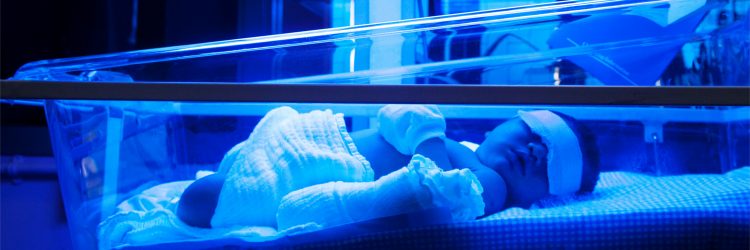Speak to a member of our specialist birth injury team. Find out if you have a claim.
CALL 0800 083 5500
Where jaundice is not effectively managed by medical staff, families may be able to make a Kernicterus claim if this more serious condition develops as a result. Expert legal advice will be required to make a successful Kernicterus claim.

Medical staff are well trained in how to deal with jaundice, and how to prevent it from worsening. As such, cases of Kernicterus should not be allowed to happen – and where they do you may be entitled to claim medical negligence compensation.
There are a number of instances where failures on the part of medical staff may have led to poor care and therefore provide grounds to make a Kernicterus claim:
Whilst these circumstances represent some of the most common reasons for making medical negligence compensation claims relating to jaundice and Kernicterus, it is not an exhaustive list of all potential scenarios. If you think your baby could have developed Kernicterus as a result of medical negligence, or they have suffered due to poor care relating to the condition, it’s important to speak to an expert legal advisor as soon as possible.
When treatment for Kernicterus/Jaundice does not reach the standards we expect from health professionals, the impact on families can be debilitating, and we understand that families in this position may not have the resources to fight a legal case in order to put things right.
Making a claim for Kernicterus compensation will ensure that you get the answers you deserve, and compensation to help pay for any future care as a result of the negligence.
The distress associated with caring for a baby that suffers from Kernicterus understandably leaves many family members distraught. At Blackwater Law, our aim is to secure you the maximum possible compensation available in your case – without introducing any additional risk or stress. That’s why we undertake all medical negligence claims – including claims for Kernicterus – on a no-win, no-fee basis. Making a claim is the best way to secure your financial future.
In rare cases, if jaundice is left undiagnosed or untreated it can lead to a more serious condition called kernicterus. This occurs when babies with very high levels of bilirubin (hyperbilirubinaemia) cross the thin layer of tissue that separates the brain and blood.
Given the severity of kernicterus, it is very important that babies presenting with these symptoms are identified quickly and monitored in order to minimise the risk of long-term damage occurring. In instances where a baby develops kernicterus due to a lack of monitoring, it may be possible to pursue a kernicterus or jaundice claim as part of a wider birth injury compensation claim.
Bilirubin in high levels can damage the brain and spinal cord, which can be life-threatening. The three risk factors for potentially developing kernicterus are:
If left untreated, kernicterus can result in brain damage. This can lead to permanent problems and conditions such as cerebral palsy, problems with eye movements, involuntary twitching, learning difficulties and hearing loss, making it crucial that kernicterus is identified in a timely manner.
Should your baby suffer from kernicterus, there are a number of short and long-term effects they may face:
The presence and severity of symptoms can vary, often according to how quickly the condition is diagnosed and treated by medical staff. Where medical negligence can be shown to have contributed to or exacerbated the effects of kernicterus it can have a significant influence on your compensation claim.
Blackwater Law solicitors specialise in birth injury negligence claims and are experienced in representing parents across England and Wales in making claims for birth injuries that have resulted from poor clinical care. We operate all of our birth injury cases on a no-win, no-fee basis.
Our team of lawyers are independently recognised as being specialists in the area of medical negligence by the Legal 500. This means that if you approach Blackwater Law for advice, the guidance you receive will be some of the best available to you.